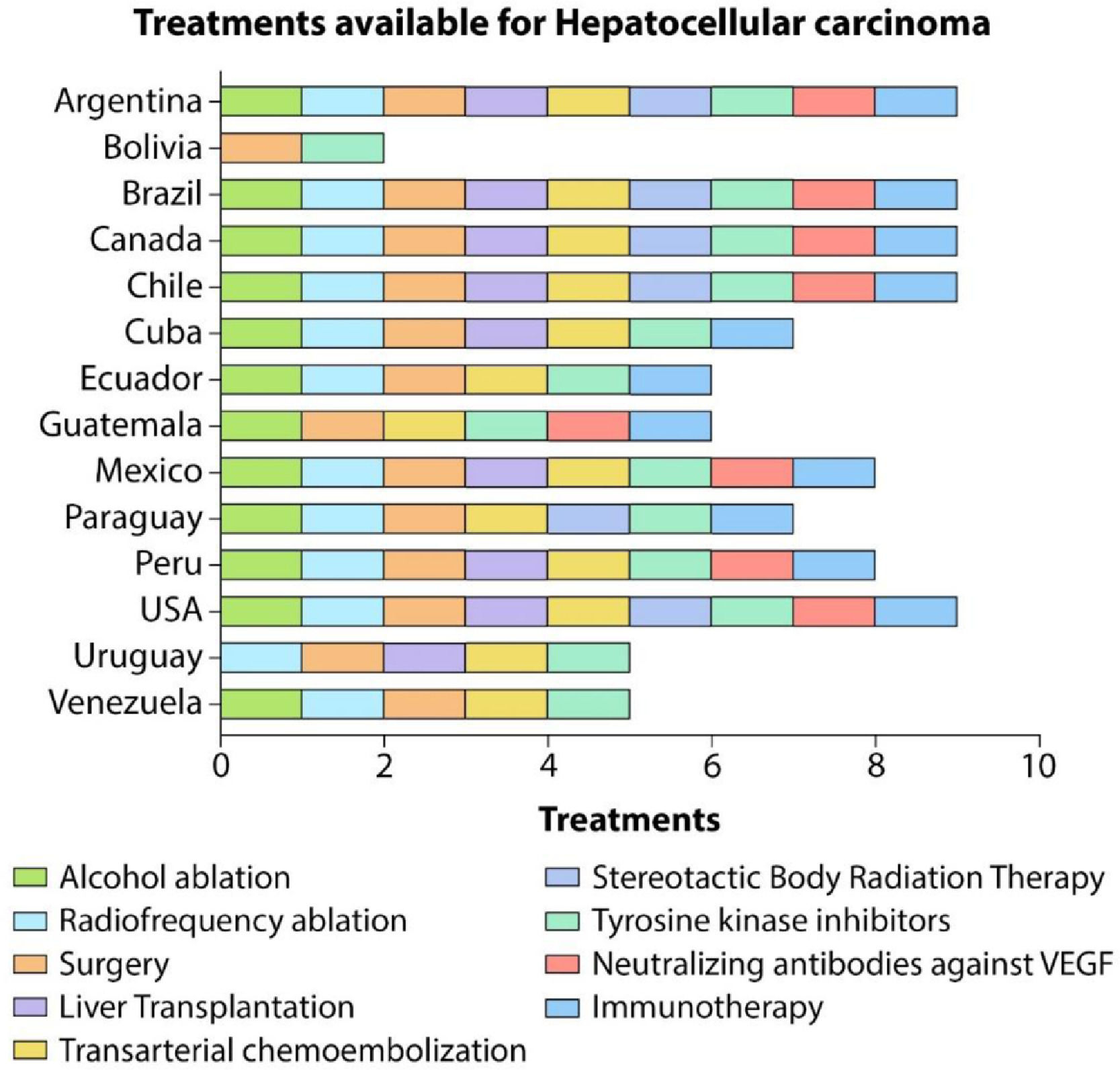
Abstracts of the 2022 Annual Meeting of the ALEH
More infoAlthough most cases of HCC occur in patients with advanced liver disease and there are effective screening methods, health policies aimed at preventing and detecting HCC are not often on the agenda of government initiatives and policies. This study aimed to explore HCC-related population-wide public health policies, treatment availability, epidemiological surveillance, and awareness campaigns in the Americas.
Materials and MethodsWe conducted a 43-item survey about HCC among experts from 12 countries. Questions were classified into four categories: policies and civil society (18 questions), clinical guidelines (5 questions), epidemiology (7 questions), and care management (13 questions). The survey was administered using an electronic form in May 2022. Data was collected in a spreadsheet, revised by two independent reviewers, and contrasted with governmental institutions.
ResultsWe obtained 22 responses from 15 out of the 18 countries targeted. A total of 7 (47%) countries had a written national cancer strategy or action plan. Only 4 (27%) countries had a specific written national HCC strategy or action plan, including Argentina, Brazil, Mexico, and the United States. These same four countries also had national clinical guidelines on HCC. HCC is managed by various providers, including Hepatologists (80%), Oncologists (80%), Gastroenterologists (60%), Surgeons (47%), and Palliative medicine (20%). There were important differences in the availability of treatments among countries in the Americas (Figure). Of note, 60% of countries had liver transplantation available for HCC, but only 67% of them had this therapy outside the capital city. Nine (60%) countries had a national disease registry that included HCC. However, only Brazil (7%) had governmental funded awareness campaigns on HCC prevention or screening.
ConclusionsImplementation of public health policies on HCC is scarce in the Americas. Important differences in treatments were observed across countries, especially in curative therapies. Our results strongly encourage developing public health policies on HCC in the Americas.









